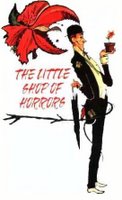.jpg)
SIDING WITH THE LILACS
The weather has bounced back like a rubber ball, at long last hitting the basket. It’s such a springy cove at times, passing swiftly through the stages of good, bad and ugly before returning to sunny skies as clear as crystal and an air as warm as a croque-monsieur coming out of the oven. The smell of breakfast blends well with the all-pervading fragrance of blooming lilacs. On the bright blue sound, a couple of white swans drifts by, apparently not in a hurry to go anywhere. They seem to have found the perfect bend of the Wolf Sound, admiring the sights. Seeing it with their eyes is easy on a lovely morning as the imagination takes off like a flock of starlings swiping across the sky in waves of delight, easy as the wind.
HOLDING POSITION I’ve trimmed the top of the spiraea hedgerow, which was beginning to look like the fuzzy fur of a green bear after a moose fight. It has become very big now. As I prevent it from growing upwards, it bulges to the sides, having become so much wider than its height that I can’t reach across it anymore. The whole area at one end is just dense, dark undergrowth catering to the hedgehogs. I had been warned that it would become very big, but the immensity of it surpasses my expectations. A picture forms of the garden growing out of the gardener’s rule as he looses his strength while the growth intensifies. Somewhat as in the old film The Little Shop of Horrors (1960) where the plants gobble down the customers including a very young Jack Nicholson. The wicker windbreak is beginning to look like something out of Tikal. It’s covered in dark-green ivy studded with purple clematis, which is moving across the tiled ground behind it with astonishing speed. It’ll cling to anything, it seems. I’ll be sharpening me’ shears and hoe, preparing for a good fight with the green monsters lurking at the doorstep.
I’ve trimmed the top of the spiraea hedgerow, which was beginning to look like the fuzzy fur of a green bear after a moose fight. It has become very big now. As I prevent it from growing upwards, it bulges to the sides, having become so much wider than its height that I can’t reach across it anymore. The whole area at one end is just dense, dark undergrowth catering to the hedgehogs. I had been warned that it would become very big, but the immensity of it surpasses my expectations. A picture forms of the garden growing out of the gardener’s rule as he looses his strength while the growth intensifies. Somewhat as in the old film The Little Shop of Horrors (1960) where the plants gobble down the customers including a very young Jack Nicholson. The wicker windbreak is beginning to look like something out of Tikal. It’s covered in dark-green ivy studded with purple clematis, which is moving across the tiled ground behind it with astonishing speed. It’ll cling to anything, it seems. I’ll be sharpening me’ shears and hoe, preparing for a good fight with the green monsters lurking at the doorstep.
THE NATURE OF THINGS
In his book The Nature of Things, Francis Ponge presents a much more tranquil picture of the vegetable kingdom. He proposes that plants “have their regular place in the world, just as they are decorated by seniority. As opposed to their itinerant brothers, they are not an addition to the world, a burden to the soil. […] With them, there are no worries about food or habitation, no mutual consumption: no horrors, mad races, cruelties, wailing, screams, words.”52KB.jpg)
Ponge cannot know much about gardening, I think. Apart from being on the quiet side, plants can be as ruthless in their pursuit of happiness as any predatory animal, I’d say. The enterprising mint bushes or the goutweed would make short work of their weaker cousins if given the opportunity. I've had my skin shredded by the razor-sharp thorns of wild roses, trying to remove an obstinate settlement of the vicious things. Branches of trees have hit me right between the eyes in moments of inattention.
French philosophers get carried away by their eloquence sometimes, I think. Siding with the plants indiscriminately may seem to be the obvious step forward on the left bank of the Seine where they are nursed in pots, but it doesn’t in a cottage garden. There are certainly some nasty specimens you wouldn’t want to run into empty-handed in a dark corner.

0 Comments:
Post a Comment
<< Home